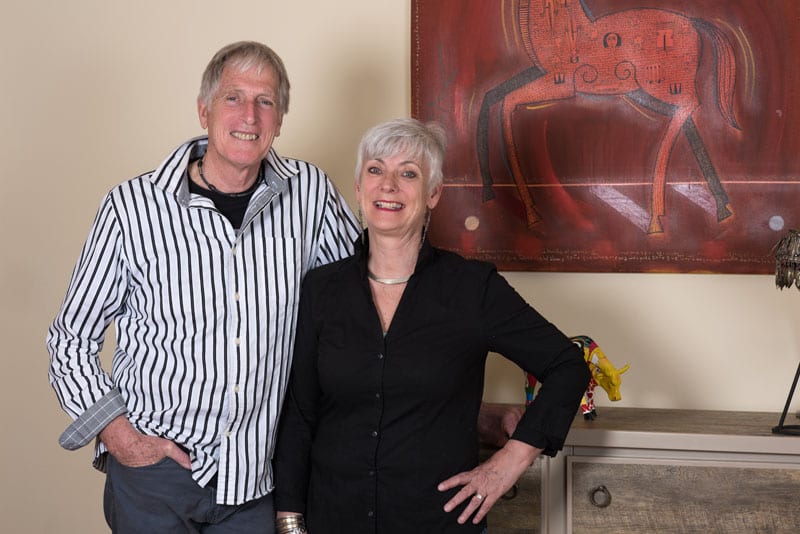Buckhead’s Robin and Ruth Howarth aid Afghan army and police.

In 2007, Buckhead resident Robin Howarth was enjoying lunch with a client at the engineering, environmental and construction firm where he worked when out of the blue, he was asked, “Have you ever considered going to Afghanistan?”
“I gave him a resounding, ‘no,’ until he mentioned the huge bump in salary. Suddenly, the idea seemed appealing enough to take home and discuss with my wife, Ruth,” Robin says.
There was a lot to think about. For one, they were both in their 60s, an age when many of their Garden Hills neighbors were thinking of retirement. What’s more, living and working in Kabul, Afghanistan, would be extremely risky.
“The more we talked, the more it appealed to our sense of adventure,” Robin says, “and our kids were grown and living on their own.”
After a conversation with senior management, Ruth also was offered a job because of her background working with nonprofits in the U.S. and the couple’s native England. Their gig was a three month residency during which they would help complete generic master plans for bases and compounds for the Afghan army and police that could be easily replicated nationwide.
The Howarths were well suited for the challenge. Both had extensive experience in revitalizing blighted areas (such as Liverpool, U.K.)—skills that were invaluable in war-torn Afghanistan.
“Arriving in Kabul was like being dropped into a cultural time warp,” Robin says. “The chaotic, dusty, pothole- ridden roads were shared by beggars, bedraggled children, goats, ‘Taliban taxis’ and military vehicles that all vied for space to maneuver. Kids played in the sewage-infested streams, and most Afghans lived in mud huts, tents or even caves.”
In stark contrast, the Howarths, other civilian expats and well educated Afghan workers lived and worked in a well-appointed but heavily guarded compound where the mini-palace next door was occupied by the deputy prime minister. “We couldn’t decide if that was a plus or a minus,” Ruth says. “He had plenty of extra security but was a prime target for anyone trying to undermine the fledgling government.”
Life was far from simple and definitely not for the faint of heart. Guards and translators accompanied them whenever they left the compound to visit military or police installations. Flak jackets and protective headgear were standard attire. There were constant car bomb and suicide-bomber attacks by the Taliban on Afghan and Coalition “targets,” which resulted in extensive collateral damage. Insider killings made working with the national police particularly treacherous since it was impossible to know if someone was friend or foe.
“The biggest danger came from bikers who would ride beside the military SUVs and stick a magnetic bomb onto the side,” Robin says.
At the end of their three-month stay, the Howarths’ contributions toward designing the master plans had proven so valuable, they were asked to extend their contract, first for one year, then two, then more. They remained for eight intense years.
But life in Kabul was not all work and no play. The couple developed close friendships with their large Afghan staff. They also saw signs of economic progress as formerly curtained retail stalls morphed into brick-and-mortar shops, banks, offices and mini-grocery stores.
Although they returned to Atlanta in 2015, the Howarths, now in their 70s, are still not content with retirement. “We’re looking for our next career move,” Robin says. “We regard accumulated wisdom as an invaluable asset and find the more we do, the more energy we have, and the more our creative juices are stimulated.”
STORY: Mickey Goodman
PHOTO: Scott Reeves

















